Are you passionate about fostering understanding among diverse communities? Sponsoring an interfaith dialogue not only promotes tolerance but also creates meaningful connections among different beliefs and cultures. By participating in this initiative, you join a growing movement that champions collaboration and peace, enriching the lives of many. Dive into the details and discover how you can make a differenceâread on to find out more!

Purpose and Objectives of Dialogue
The purpose of interfaith dialogue sponsorship involves fostering mutual understanding among diverse religious communities, focusing on tolerance and respect. Objectives include encouraging open discussions on beliefs and practices of various faiths, promoting collaborative efforts for social justice initiatives, and addressing common challenges such as discrimination, poverty, and violence. Events such as panel discussions, workshops, and cultural exchanges are organized to facilitate these objectives, bringing together representatives from faiths including Christianity, Islam, Judaism, Buddhism, and Hinduism. The ultimate aim is to create a harmonious society that values diversity and promotes peaceful coexistence among different religious traditions.
Target Audience and Demographics
Interfaith dialogue sponsorship plays a crucial role in fostering understanding among diverse religious communities. Target audiences include individuals and groups from various faith backgrounds, such as Christians, Jews, Muslims, Hindus, and Buddhists, representing significant global populations. For instance, around 2.4 billion Christians globally, 1.8 billion Muslims, and 1.2 billion Hindus offer a rich tapestry of perspectives. Demographics may vary across age, with younger generations increasingly involved in interfaith initiatives, while older participants often bring wisdom and experience from longstanding traditions. Geographic locations significantly impact engagement, with urban areas often more diverse than rural regions. This initiative aims to create a platform that encourages dialogue, dispels myths, and promotes peace among different faiths, contributing to social cohesion and respect for diverse beliefs.
Sponsorship Benefits and Opportunities
Interfaith dialogue programs promote understanding among diverse religious communities, fostering respect and collaboration. Sponsorship of these events offers organizations visibility across multiple faith groups, reaching an audience of thousands within local communities. Opportunities for branding include logo placement on promotional materials and event signage at venues like community centers or places of worship. Sponsors receive recognition in press releases and social media campaigns, enhancing public perception as community leaders. Participating sponsors gain access to networking events, connecting with key influencers and leaders from various faith traditions. This collaboration opens pathways for future partnerships and initiatives focused on social harmony and shared values. Additionally, sponsors can contribute to workshops that promote peacebuilding and conflict resolution, aligning their brands with positive social change.
Financial and Logistical Requirements
Interfaith dialogue events, such as conferences or community gatherings, necessitate thorough financial and logistical planning to ensure success. Key expenses include venue rental, typically ranging from $500 to $5,000 depending on location, such as community centers or places of worship. Catering costs for meals and refreshments can add another $20 to $50 per participant, impacting overall budgeting. Printed materials, including brochures and programs, may require an additional $200 to $1,000 for quality design and production. Transportation needs encompass costs for shuttling participants, especially in cities like Chicago or New York, where public transport may be limited. Technology requirements for audiovisual equipment, essential for presentations and live-streaming, can range from $300 to $1,500. Lastly, funding for promotional efforts, from social media advertising to local flyers, is crucial for participant outreach, typically demanding an investment of $250 to $1,000. A well-defined budget, along with logistical coordination, ensures a productive and inclusive interfaith dialogue experience.
Organizational Values and Mission Alignment
Interfaith dialogue promotes mutual understanding and respect among diverse religious beliefs. Organizations embarking on such initiatives often aim to foster community cohesion and strengthen relationships. Key values such as tolerance, empathy, and inclusivity play a critical role in these dialogues. Grounded in missions focused on promoting peace and social justice, sponsors can amplify their impact. Relevant events such as community workshops or panel discussions can serve as platforms to explore similarities and differences among faith traditions. Notable examples include the Parliament of the World's Religions, held in various global cities, and local interfaith councils that encourage grassroots participation. Emphasizing organizational alignment ensures that initiatives resonate with core principles, ultimately enriching the dialogue experience and reaching broader audiences.
Letter Template For Interfaith Dialogue Sponsorship Samples
Letter template of grant application for interfaith dialogue initiatives
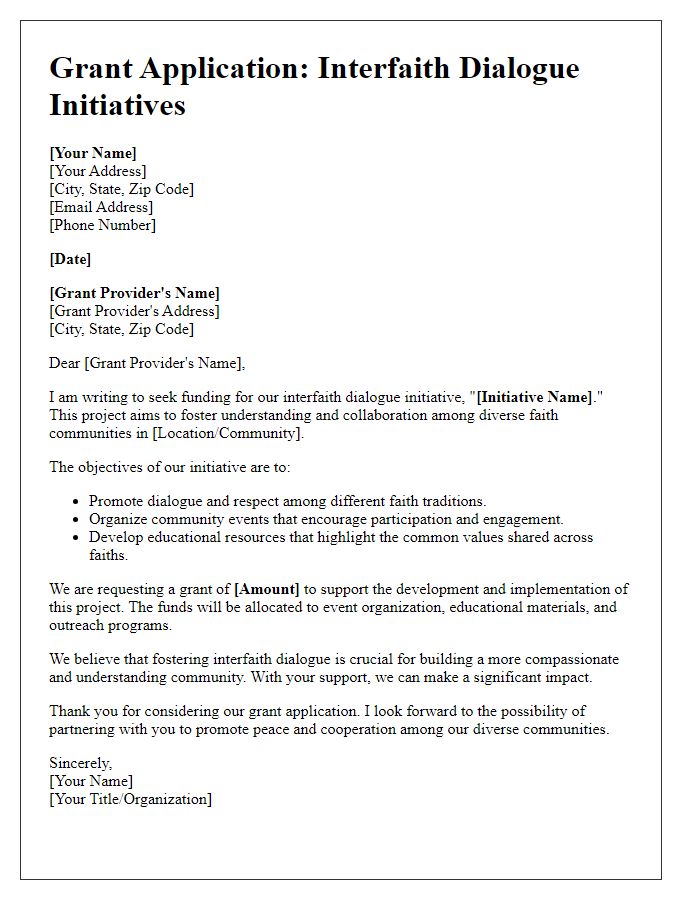
Letter template of acknowledgment for interfaith dialogue sponsorship contributions
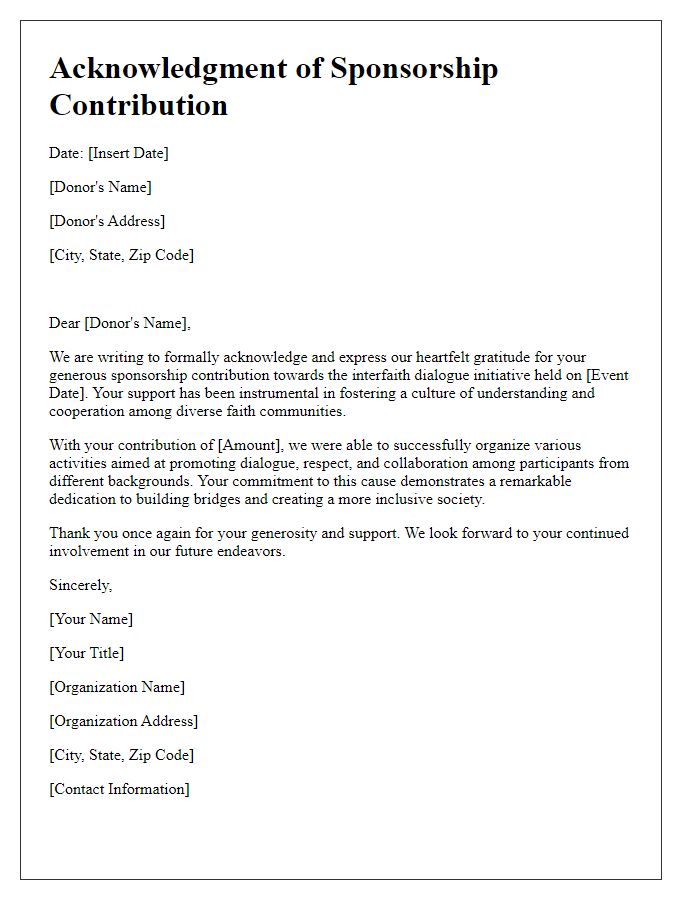

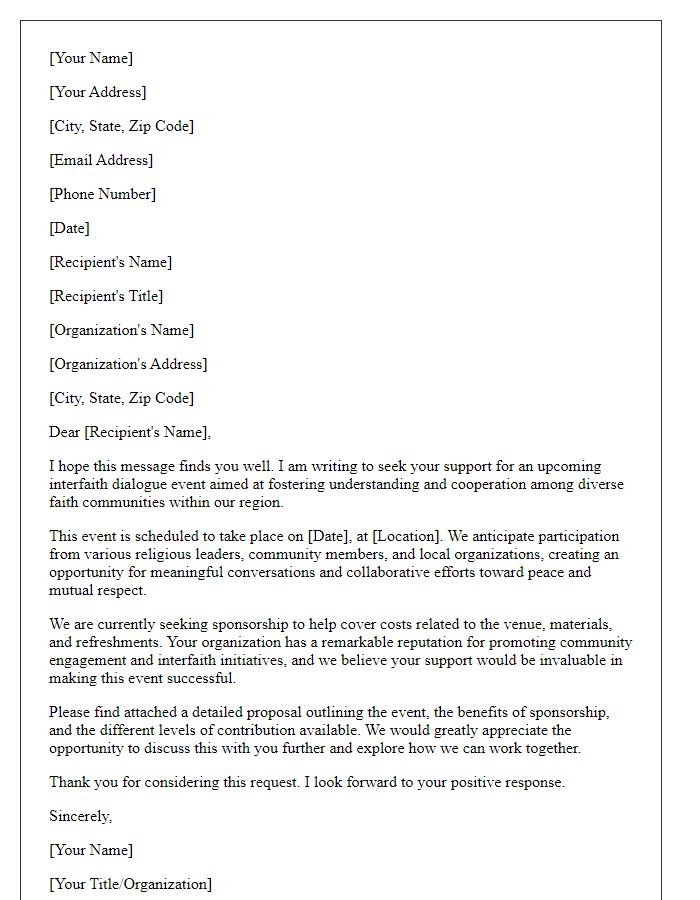
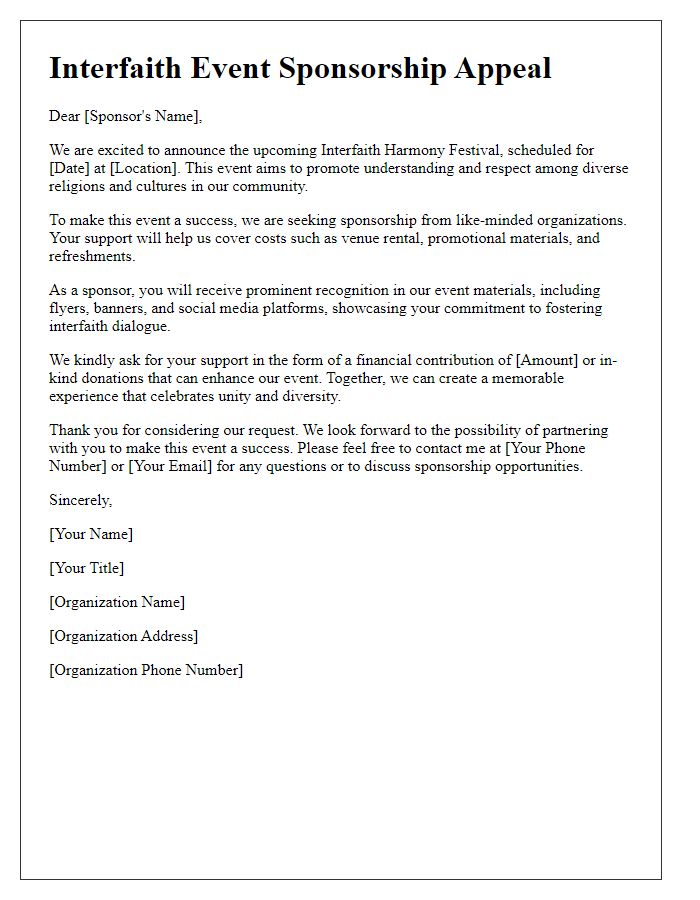
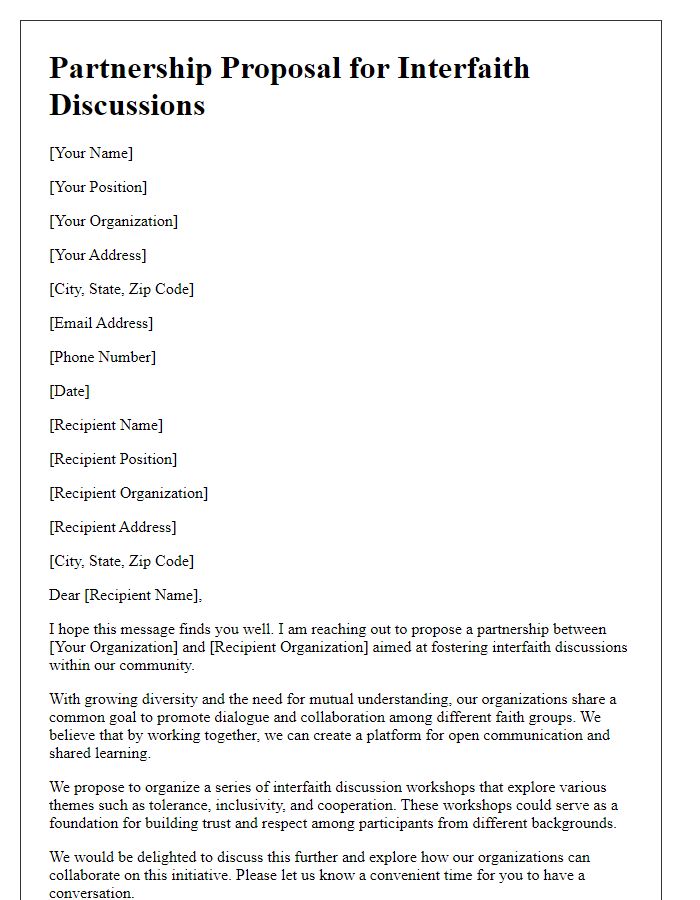
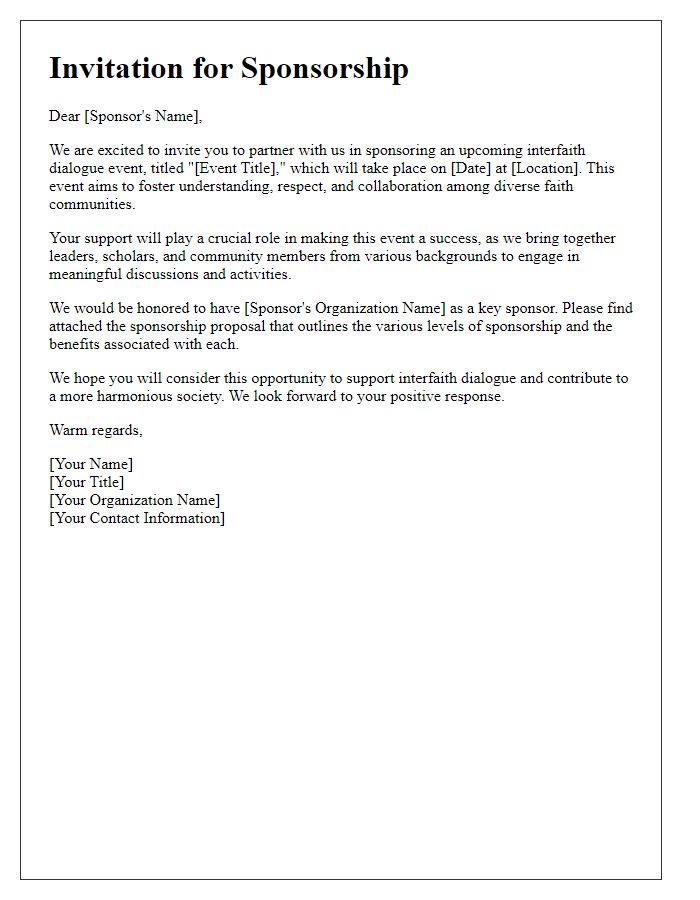
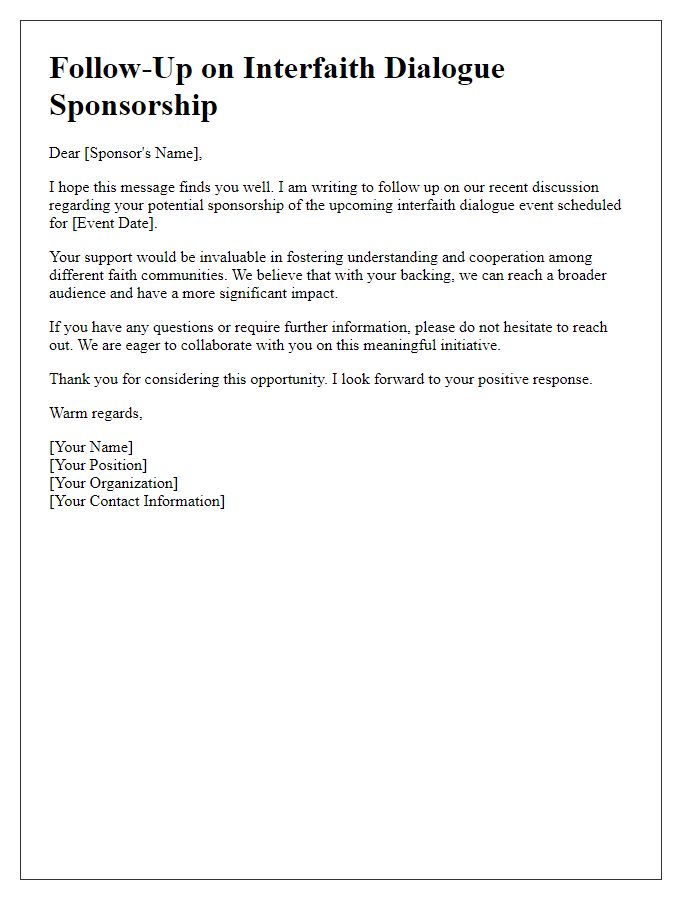
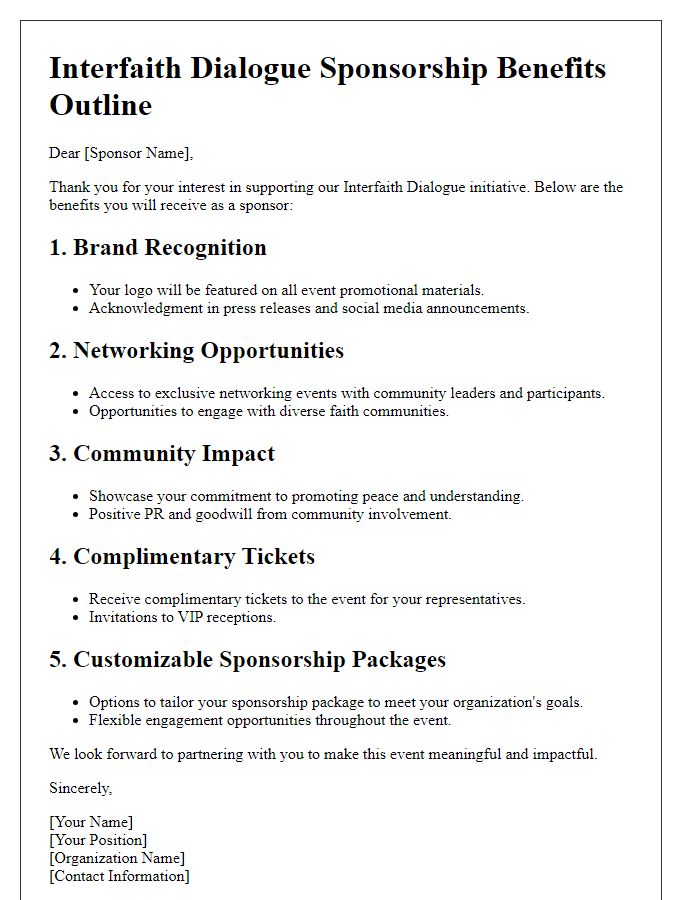
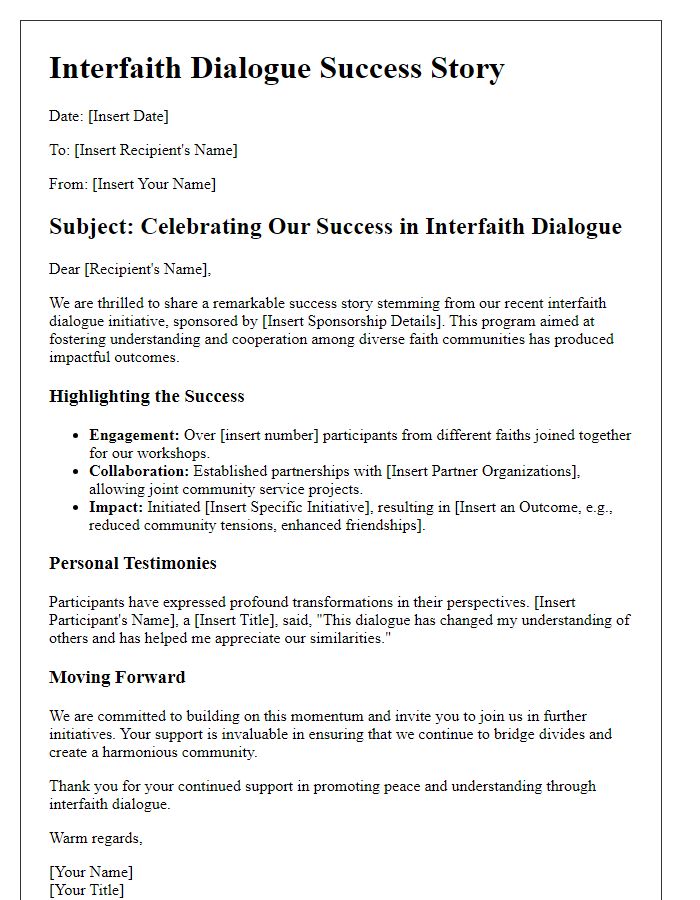
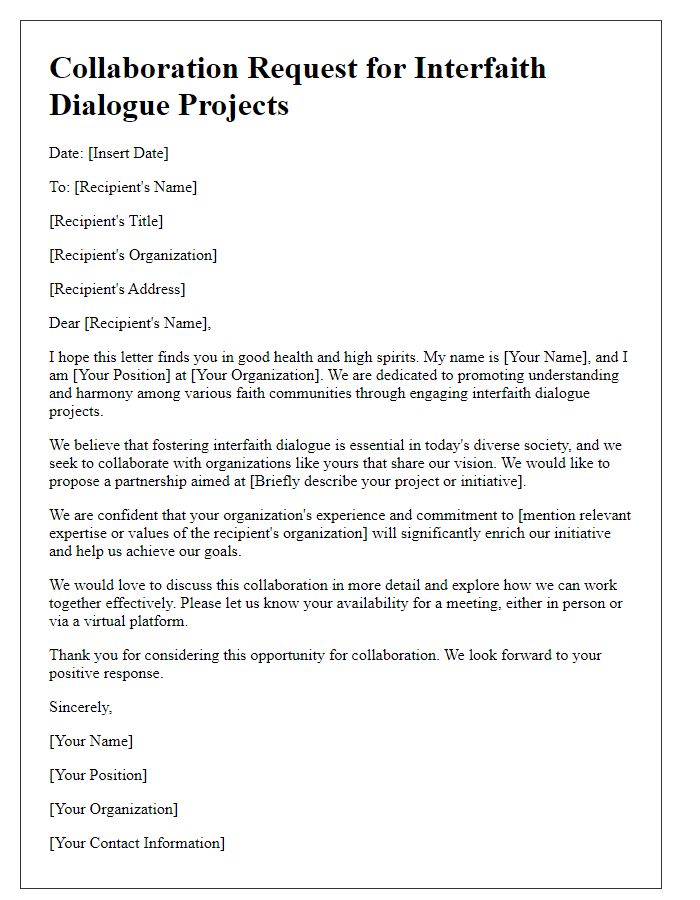


Comments